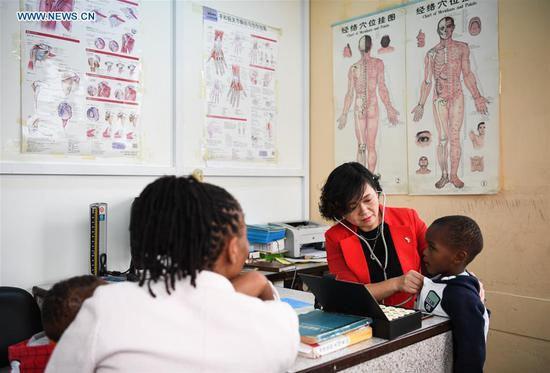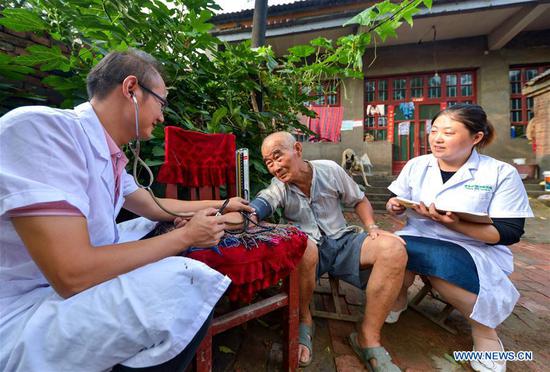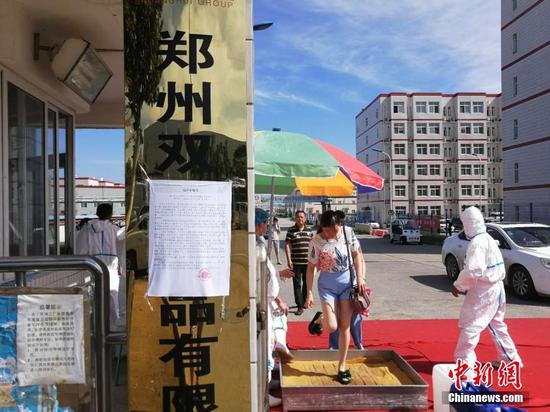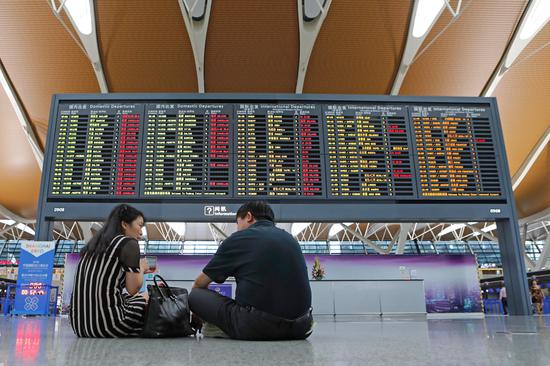Outbreaks strain pork supply in hog hubs, push up prices
Chinese authorities on Sunday reported a new African swine fever (ASF) outbreak in Lianyungang, East China's Jiangsu Province, following outbreaks in Liaoning and Henan Provinces.
China's Ministry of Agriculture and Rural Affairs said on Sunday 615 pigs in a farm in Haizhou district, Lianyungang have been discovered with the ASF, and the disease has killed 88 of them since Wednesday.
Haizhou authorities have launched an emergency response mechanism that includes culling live pigs in the cordoned-off zone where the ASF was discovered, and banning live pigs and other animals prone to the virus and animal products from entering or being shipped out of the area, the ministry said.
The Jiangsu ASF outbreak has been effectively contained as of press time, according to the State agricultural regulators.
Earlier this month, the outbreak was first discovered in a farm in Shenyang, capital of Northeast China's Liaoning Province, shortly before another was found at a slaughterhouse in Zhengzhou, capital of Central China's Henan Province. The Zhengzhou slaughterhouse had bought 260 pigs, which were later discovered to be infected with ASF, from a market in Tangyuan county, Jiamusi in Northeast China's Heilongjiang Province.
An unnamed ministry official said on August 3 at a press conference that the ASF virus could be extremely fatal to pigs, but not contagious to humans.
However, the outbreaks reported at Chinese traditional hog-sourcing hubs like Liaoning and Heilongjiang provinces should place the government on alert because the disease could severely affect the country's pig supply, Ma Wenfeng, a senior analyst at Beijing Orient Agribusiness Consultancy, told the Global Times on Sunday.
Hog prices have been rising for the past three months, reaching 12.76 yuan ($1.86) per kilo as of the first week in August, up 1.9 percent compared to the same period last year, data provided by China National Radio on Friday shows.
The number of pigs from Liaoning Province dropped by 83 percent on August 12, compared to the start of August when the ASF incident was discovered, and will remain that way for at least six weeks during the blackout period, said Ao Fengling, director of the Liaoning animal husbandry and veterinary bureau.
Liaoning is one of the country's biggest pig hubs, and one third of Liaoning live pigs are being shipped outside the province to supply other regions of the country.
The government should quickly step into live pig prices, a main indicator of the consumer price index, which would affect the country's macro-economic management, Ma noted. Ma added that after culling live pigs in the ASF-affected sites, the government and insurance firms should provide subsidies and compensation to the affected farms.
A thorough quarantine inspection should also be immediately conducted throughout the country, he said.


















































